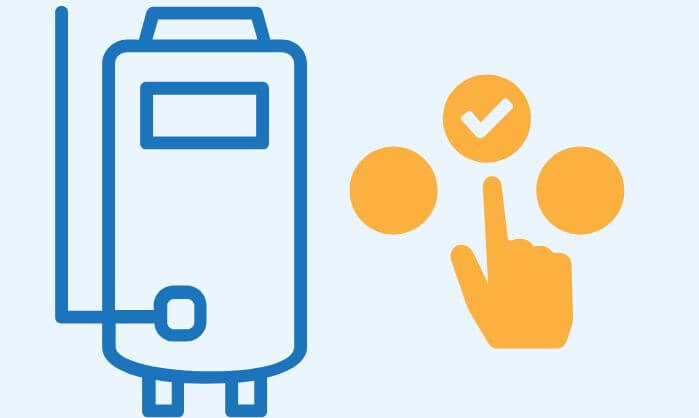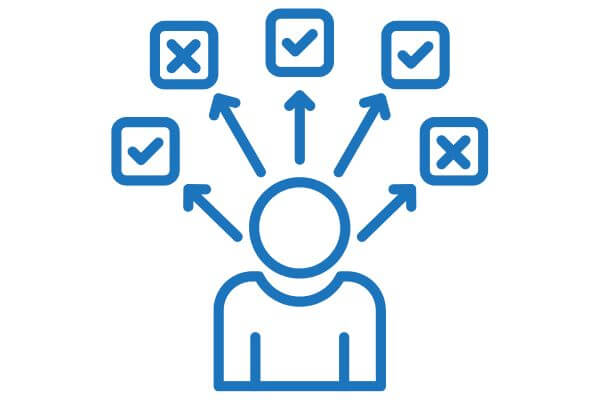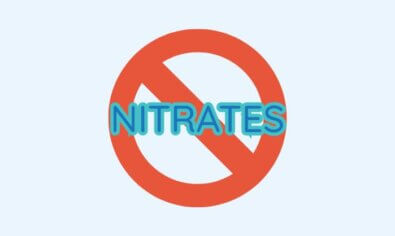What Are the Different Kinds of Water Heaters Available?
Choosing the right water heater for your home can be tough. To be sure, there are many different kinds of water heaters available. Each has its own set of pros and cons.
Do you want a traditional tank model or the latest tech? Clearly, learning your water needs is key to making the best decision.
In this post, we’ll cover:
- The history and evolution of water heaters
- Different kinds of water heaters and their uses
- When to choose each type of water heater
- Pros and cons of each water heating system
- Maintenance and energy efficiency tips for your water heater
Let’s dive into the thrilling story of water heaters. We’ll help you find the perfect one for your home.

A Brief History of Hot Water
Of course, the desire for readily available hot water is an ancient one.
Early humans heated water over open fires for bathing and cooking. In fact, natural hot springs and elaborate baths have been enjoyed for millennia.
But the concept of a water heating system within a home is a somewhat new development.
Early innovations: The first patented water heater emerged in 1868. It was invented by Benjamin Waddy Maughan. He was an English painter in the Victorian era.
Notably, his early design used natural gas to heat water. Indeed, gas was very popular during this time.
The 20th century boom: Of course, the 1900s witnessed big advancements in water heater technology.
Gas and electric water heaters were more common in US homes. They provided a constant source of hot water. Notably, this improved public health and sanitation.
Additionally, thermostats and safety features improved efficiency. Too, they reduced the risk of house fires.
Modern advancements: In 2025, we have many different kinds of water heaters. Including tankless, solar, and heat pump models.
Also, these modern options focus on energy efficiency, sustainability, and customization.
Consequently, water heater evolution continues. To be sure, manufacturers still work to create more efficient and sustainable systems.
Exploring the Different Kinds of Water Heaters
The world of water heaters has evolved. Chiefly, there’s a lot of options. Find what suits your needs and preferences.
What different kinds of water heaters are available on the market today? Now, let’s learn more.
Tank Water Heaters
Clearly, tank water heaters are the most traditional water heater system type.
They consist of an insulated tank that continuously heats and stores water. Thus, water is ready for use whenever you turn on a hot water tap.
How they work: To start, a heating element (either gas or electric) at the bottom of the tank heats the water. Next, hot water rises to the top of the tank. Finally, it’s drawn out when needed.
Then, as hot water is used, cold water enters the tank. This is then heated, ensuring a constant supply.
Types:
- Gas water heaters: These use natural gas or propane to heat the water. Typically, they heat water faster than electric ones.
- Electric water heaters: These use electric heating elements to heat the water. They are generally less expensive to install. But it can be more costly to operate. This depends on local electricity rates.
Common uses: Tank water heaters are suitable for households with moderate to high hot water demands.
They are a smart choice for families. Especially who use multiple hot water appliances simultaneously.
Pros:
- Lower cost compared to tankless models.
- Easy to install and replace.
- Familiar technology makes repairs straightforward.
Cons:
- They can be less efficient due to heat loss. This is heat escaping from the tank.
- Limited hot water supply. You can run out if you use too much at once.
- Takes up more space than tankless models.
Tankless Water Heaters
Tankless water heaters, also known as on-demand water heaters, heat water only when you need it. They eliminate the need for a storage tank. As a result, they provide an endless water supply.
Ready for a shower? Simply put, just turn on a hot water tap. Cold water flows through a heat exchanger in the unit. And you get to enjoy a better bath or shower.
A high-powered gas burner or electric element heats water instantly. Thus, tankless heaters can deliver hot water on demand.
Types:
- Natural gas tankless water heaters: These are more powerful. They can handle more demand. But they require a gas line connection.
- Electric tankless water heaters: These are suitable for smaller homes or apartments with lower hot water needs. They require a high-amp electric circuit.
Common uses: Tankless water heaters are ideal for households with limited space. Plus, those who want an unlimited supply of hot water.
Pros:
- Endless hot water supply.
- Higher energy efficiency. They only heat water when needed.
- Space-saving design.
- Longer lifespan compared to tank water heaters.
Cons:
- Higher upfront cost.
- Can require potential upgrades to gas lines or electrical panels.
- May experience a slight delay in hot water delivery.
Heat Pump Water Heaters
These are also known as hybrid water heaters. Definitely, they’re a smart alternative to traditional electric tank heaters.
They move heat from one place to another. Rather than generating heat directly.
How they work: You see, heat pump water heaters extract heat from the surrounding air. After that, they transfer it to the water in the tank.
Correspondingly, they work like a refrigerator in reverse. They pull heat from the air to warm the water.
Common applications: Heat pump water heaters are best suited for homes in sunny climates. As well as those with ample space. Because they require good airflow around the unit.
Heat pump water heaters (HPWH) are a great choice for homeowners. Especially if you’re looking to reduce energy consumption and lower utility bills.
Pros:
- High energy efficiency. You can save a ton on water heating costs compared to standard electric heaters.
- Environmentally friendly.
- They can sometimes provide cooling to the surrounding area.
Cons:
Protect Your Water Heater from Hard Water – Get a Free Test!
Hard water can lead to expensive repairs for your water heater. Get a free water test today to check your water quality and learn how to prevent damage to your heater and home.

- Higher upfront cost.
- Requires a larger space with good ventilation.
- Do not work well in cold weather.
- May be louder than other types of water heaters.
Solar Water Heaters
Solar water heaters use the sun’s energy to heat water. They use solar collector cells. They are usually mounted on the roof.
How they work: In general, the solar collectors absorb sunlight and transfer heat to a storage tank. Then, heat is then transferred to the water in the storage tank. This provides hot water for your home.
Types:
- Active systems: These use pumps and controls to circulate the heat transfer fluid.
- Passive Systems: These rely on natural convection to circulate the fluid.
Common applications: Solar water heaters are ideal for homes in warm climates with a south-facing roof.
In addition, they’re a sustainable choice for homeowners. Specifically, those who want to use less energy.
Pros:
- Renewable energy source.
- Significant energy savings.
- Environmentally friendly.
- In fact, government incentives and rebates may be available.
Cons:
- Higher upfront cost.
- Performance depends on sunlight.
- May require a backup system for cloudy days.
- Requires professional installation.
Condensing Water Heaters
Condensing water heaters are a type of high-efficiency gas water heater. They capture and reuse heat that would normally be lost in exhaust gases.
Therefore, they’re designed to maximize energy efficiency. Similarly, they also reduce greenhouse gases.
How they work: Condensing water heaters use a secondary heat exchanger. This captures heat from the exhaust gases.
Accordingly, this heat is then used to preheat the incoming cold water. Hence, reducing the amount of energy needed to heat your water.
Common applications: These water heaters are best for homes with high water usage. And for homeowners who desire to minimize energy consumption.
They’re best for those who want to go green and lower their utility bills.
Pros:
- Very high energy efficiency.
- Reduced greenhouse gas emissions.
- Can qualify for energy efficiency rebates.
Cons:
- Higher upfront cost.
- Requires a drain for condensate.
- More complex installation.
As always, it’s best for the different kinds of water heaters to be installed by a licensed plumber.

Choosing the Right Water Heater
Selecting the right water heater involves considering several factors. All in all, you’ll want to think about:
Hot water demand: Estimate your household’s daily hot water usage. Note the number of occupants, showers, laundry, and dishwasher cycles.
Different kinds of water heaters might be suitable for smaller households with low needs. While a traditional tank water heater might be better for larger families with high usage.
Energy efficiency: Check the energy efficiency ratings. Different kinds of hot water heaters use differing amounts.
Look for models with high Uniform Energy Factor (UEF) ratings. This can indicate greater efficiency. Consider the long-term savings versus the upfront cost.
Fuel source: Decide whether you prefer gas, electric, or solar power.
In practice, gas water heaters typically heat water faster. These can be cheaper where gas costs less.
Moreover, electric water heaters are easier to install. However, they may be more expensive to operate depending on electricity rates. Plus, solar water heaters require a sunny climate.
Space availability: Note the available space in your home. Do you have enough space for different kinds of water heaters?
In fact, tank water heaters require more space. Indeed, consider the size of the unit you want before buying.
Your budget: Determine the upfront cost. As well as installation fees and operating expenses.
Energy-efficient models may cost more. But they’ll save you money on bills for years.
Water Heater Installation and Maintenance Tips
In essence, pro installation and regular maintenance are key. So is the smooth operation of your water heater.
Here are some tips. These will keep different kinds of water heaters in top condition:
- Professional installation: Hire a qualified plumber to install your water heater. They’ll make sure that the unit works well.
- Regular flushing: Flush the water heater at least once a year to remove sediment buildup. In fact, sediment can reduce the efficiency of the unit. This causes damage to the tank.
- Inspect the anode rod: The anode rod protects the tank from corrosion. Inspect the rod every few years. Accordingly, replace it if it is corroded.
- Insulate the pipes: Insulate the hot water pipes to reduce heat loss. This can save you money on energy bills.
- Check the temperature and pressure relief valve: The temperature and pressure relief valve (TPR valve) is a vital safety device. Test the TPR valve periodically to ensure it is functioning properly.
- Monitor for leaks: Regularly inspect the water heater for leaks. Indeed, small leaks can lead to messy water damage in your home.
Understanding the Different Kinds of Water Heaters
To sum up, consider your hot water needs and budget. This will lead you to the best decision. And as always, the experts at Angel Water are here for you.
Plus, perform regular maintenance and repairs. Ultimately, your new water heater should reliably provide hot water on demand.
In short, stay informed about the latest tech and trends. And choose a water heating system that meets your needs.
Our licensed plumbers offer expert guidance. We’ll explain the different kinds of water heaters. Then, we’ll help you make the best choice. Reach out today!
Protect Your Water Heater – Schedule an Appointment Now!
Prevent hard water damage and extend the life of your water heater. Schedule an appointment with our specialists today to explore water softening solutions for your home.


